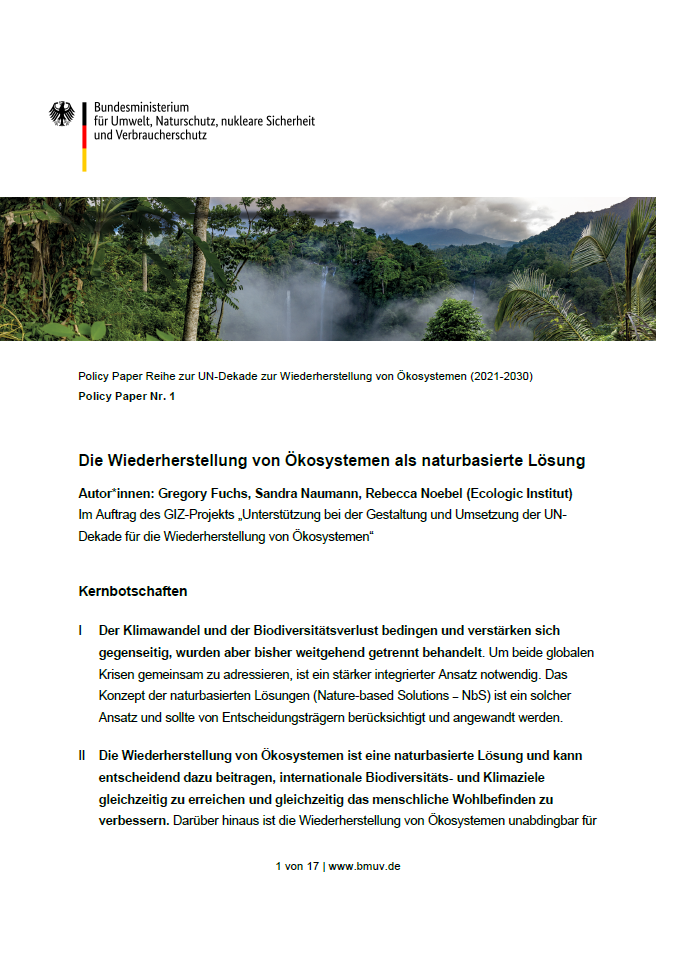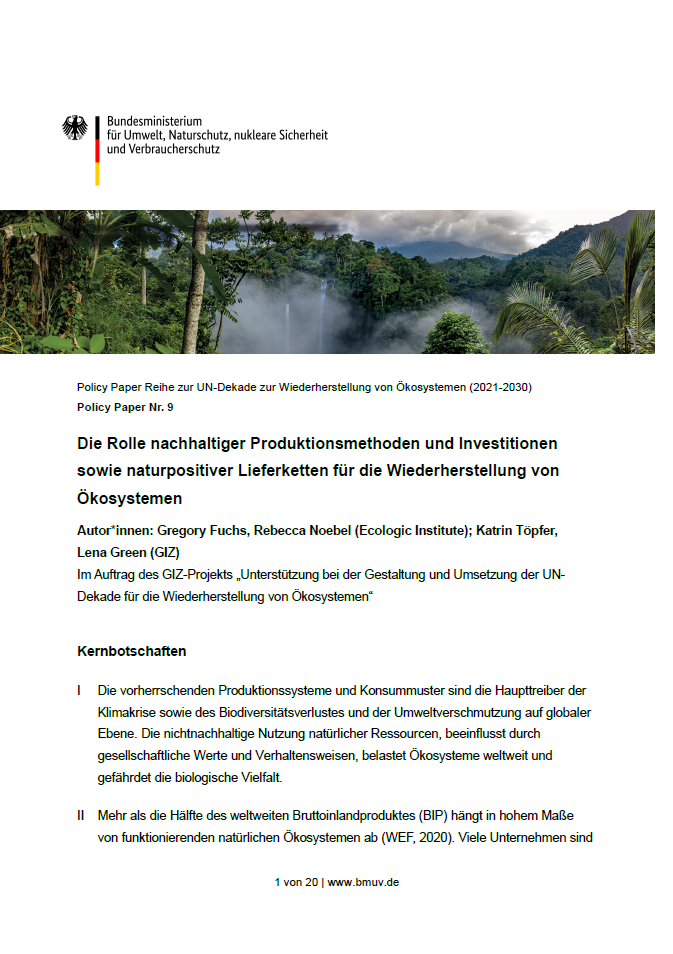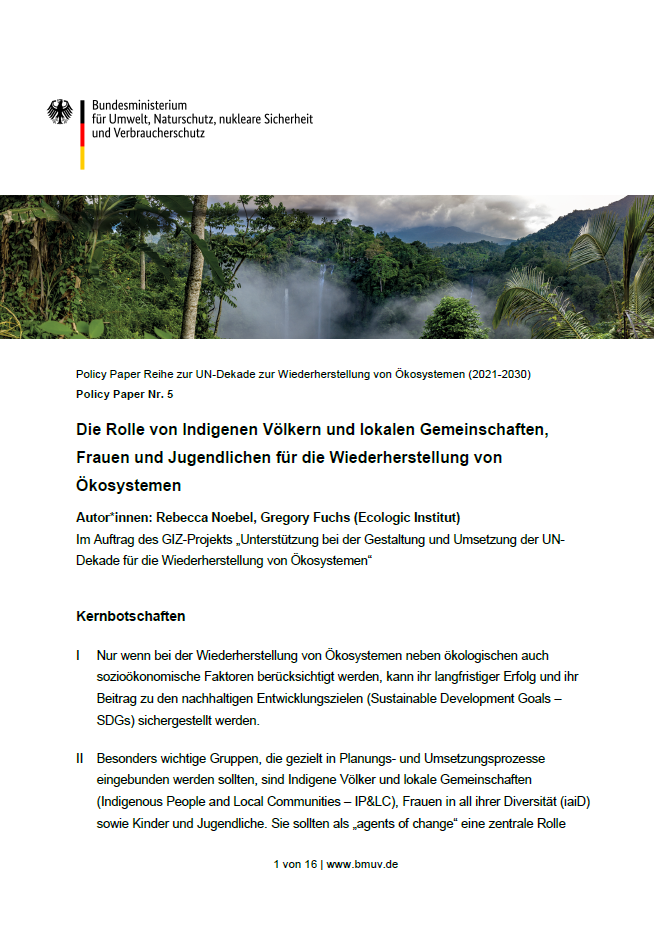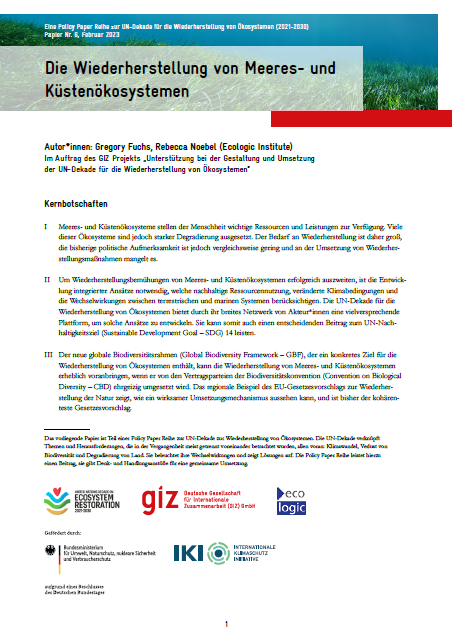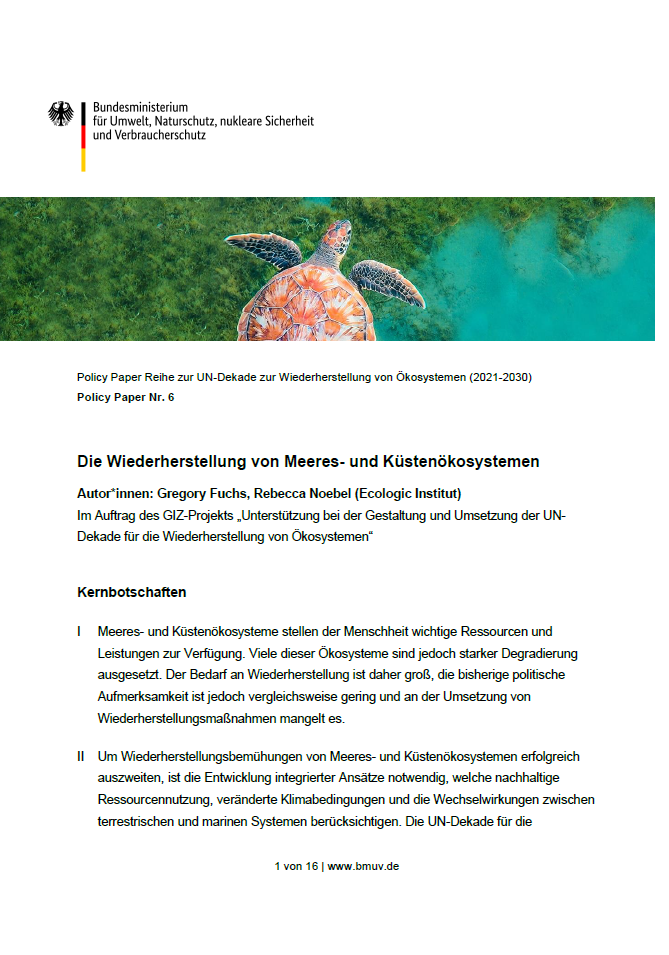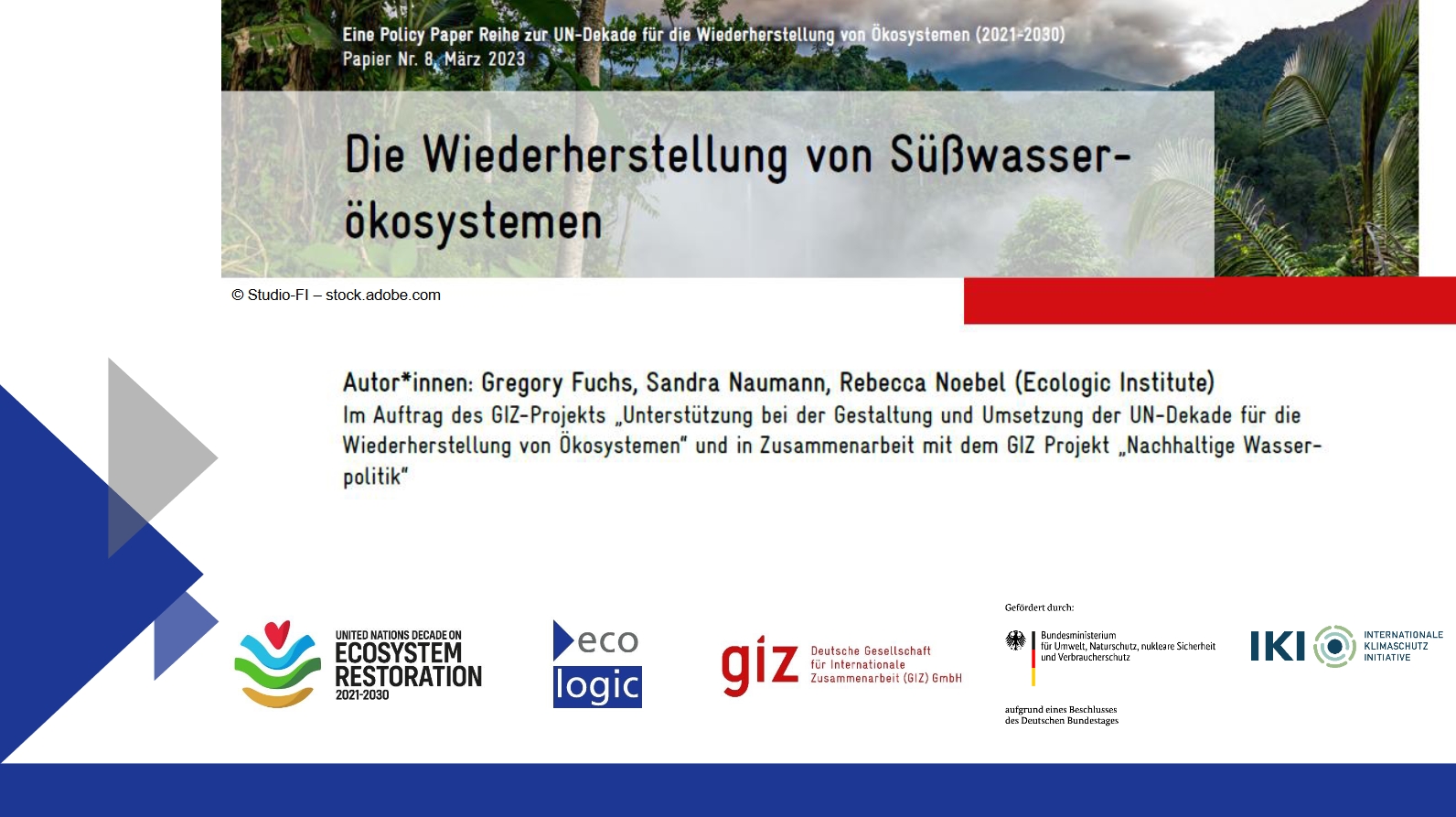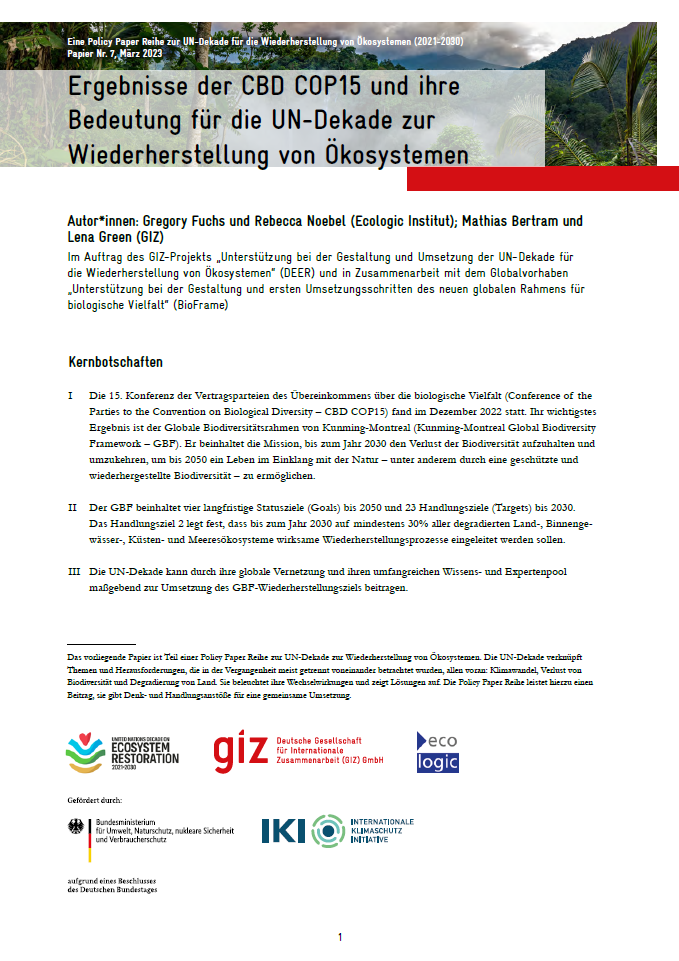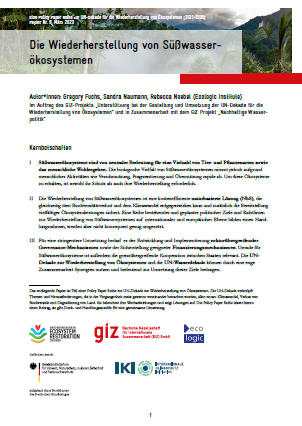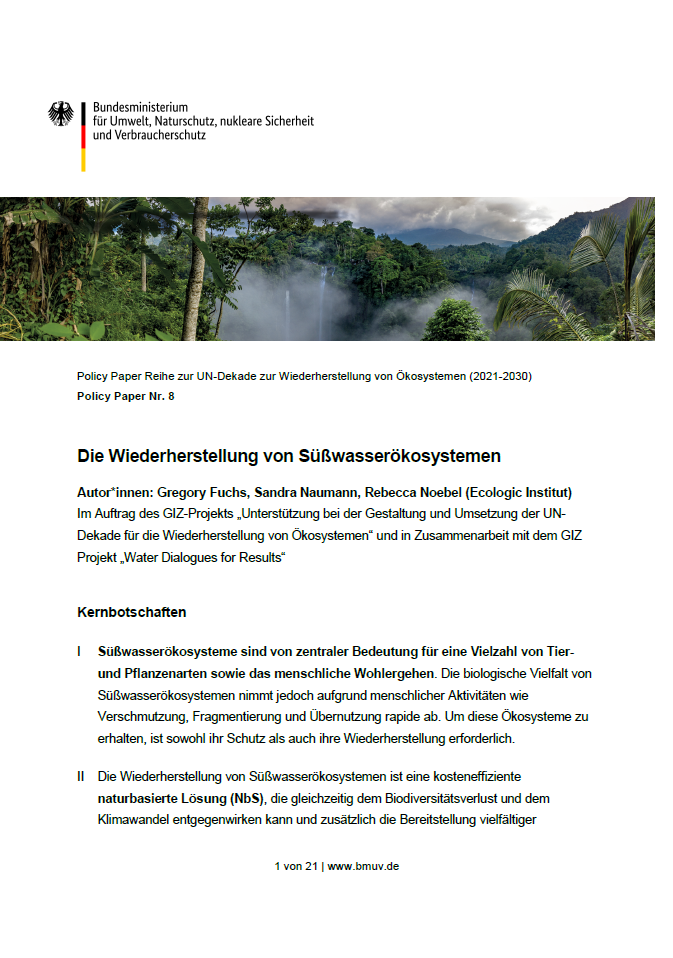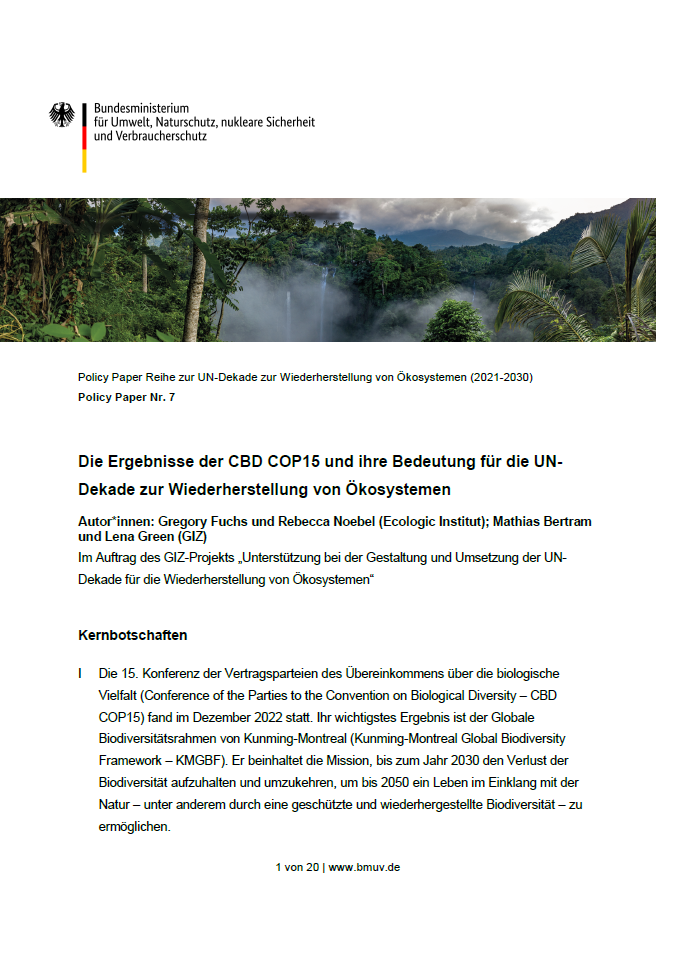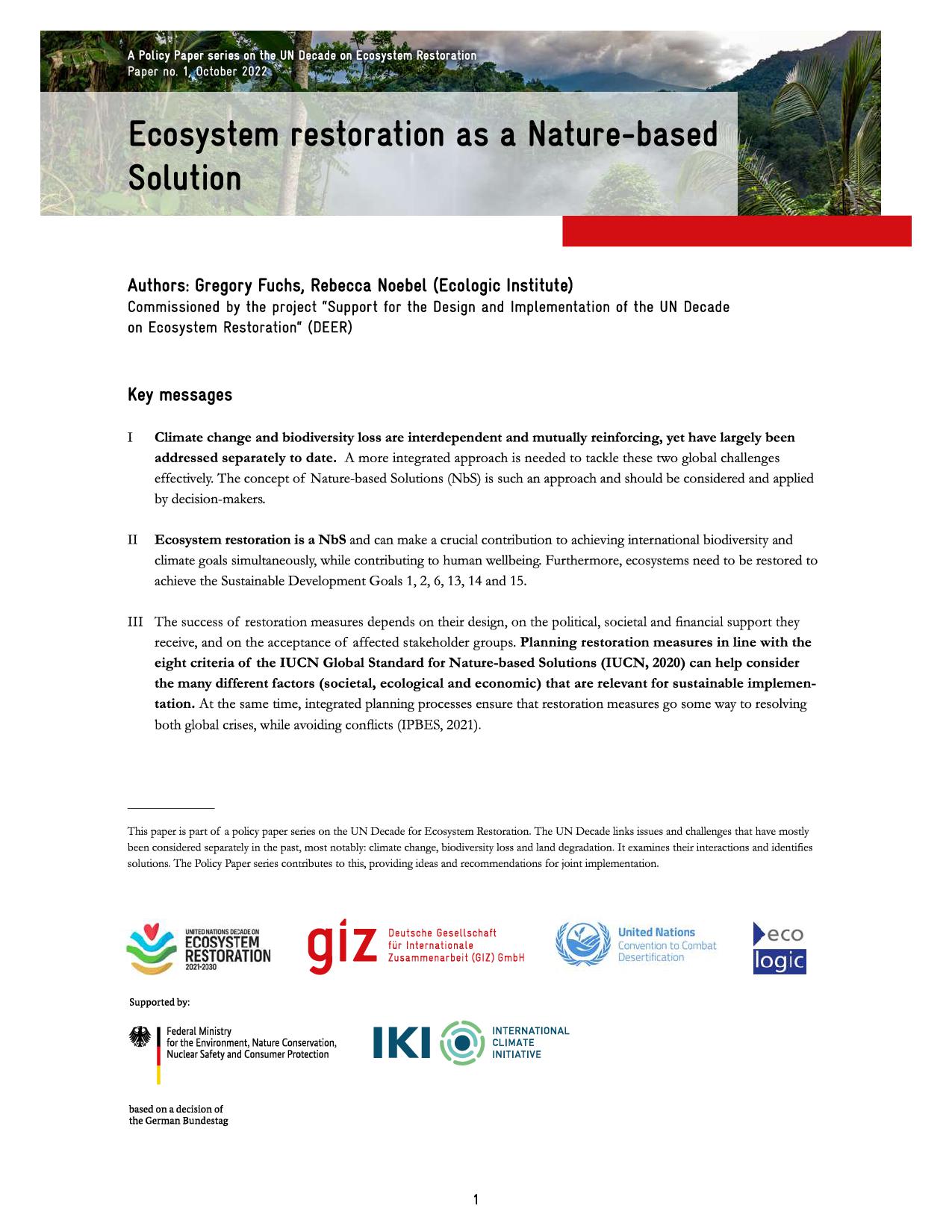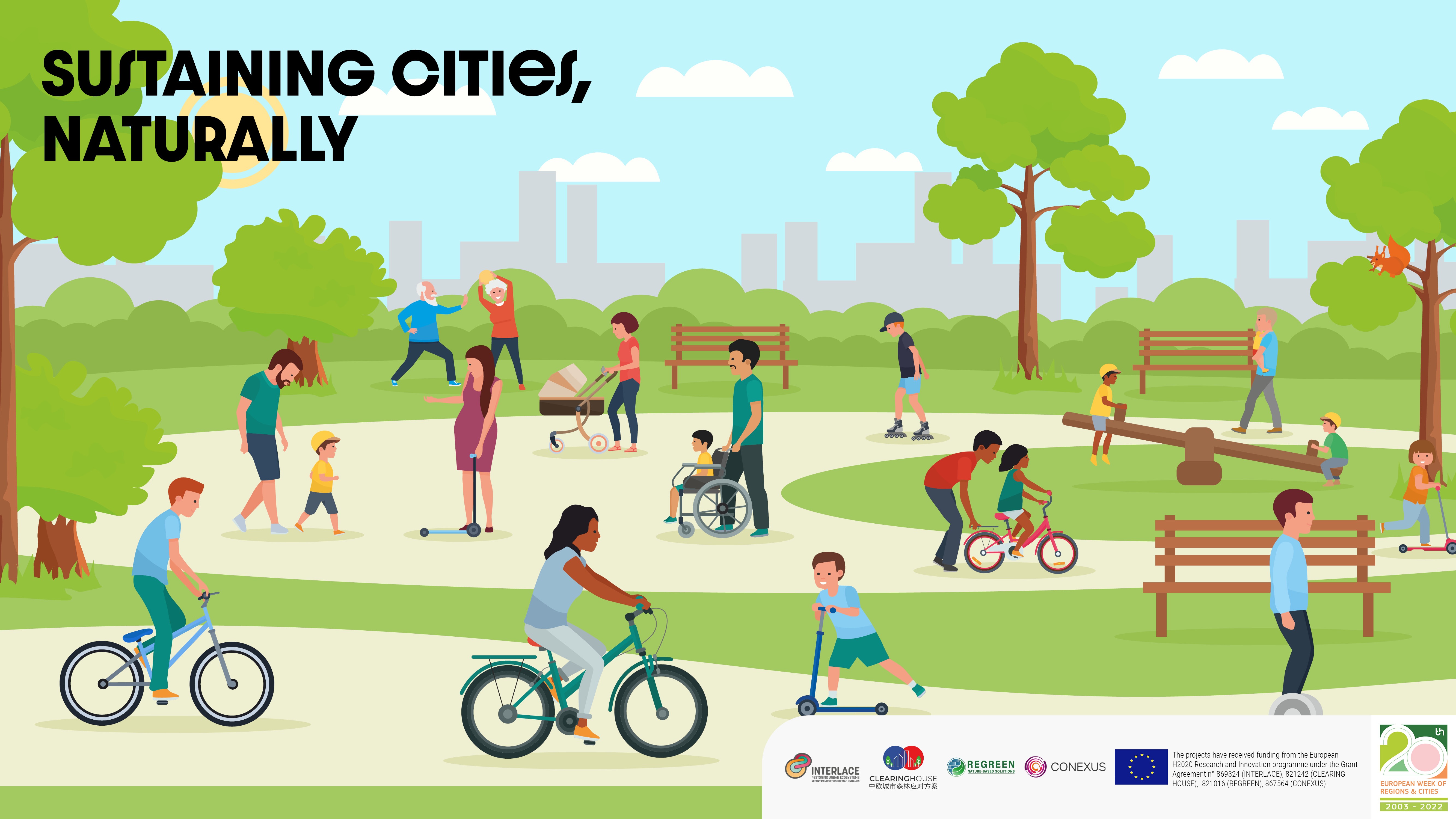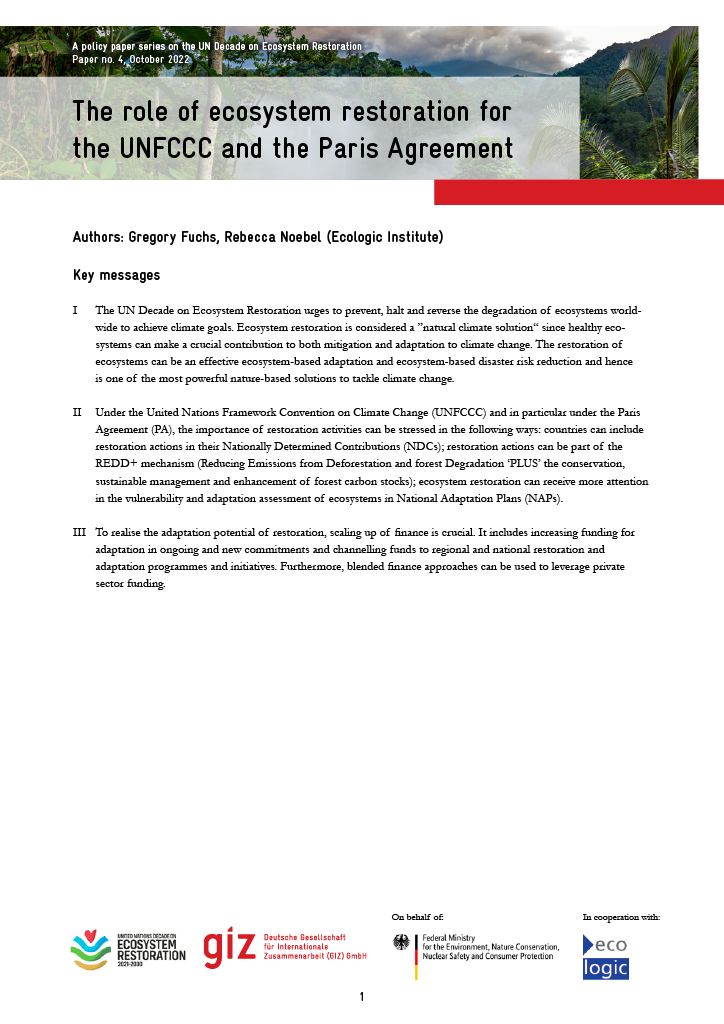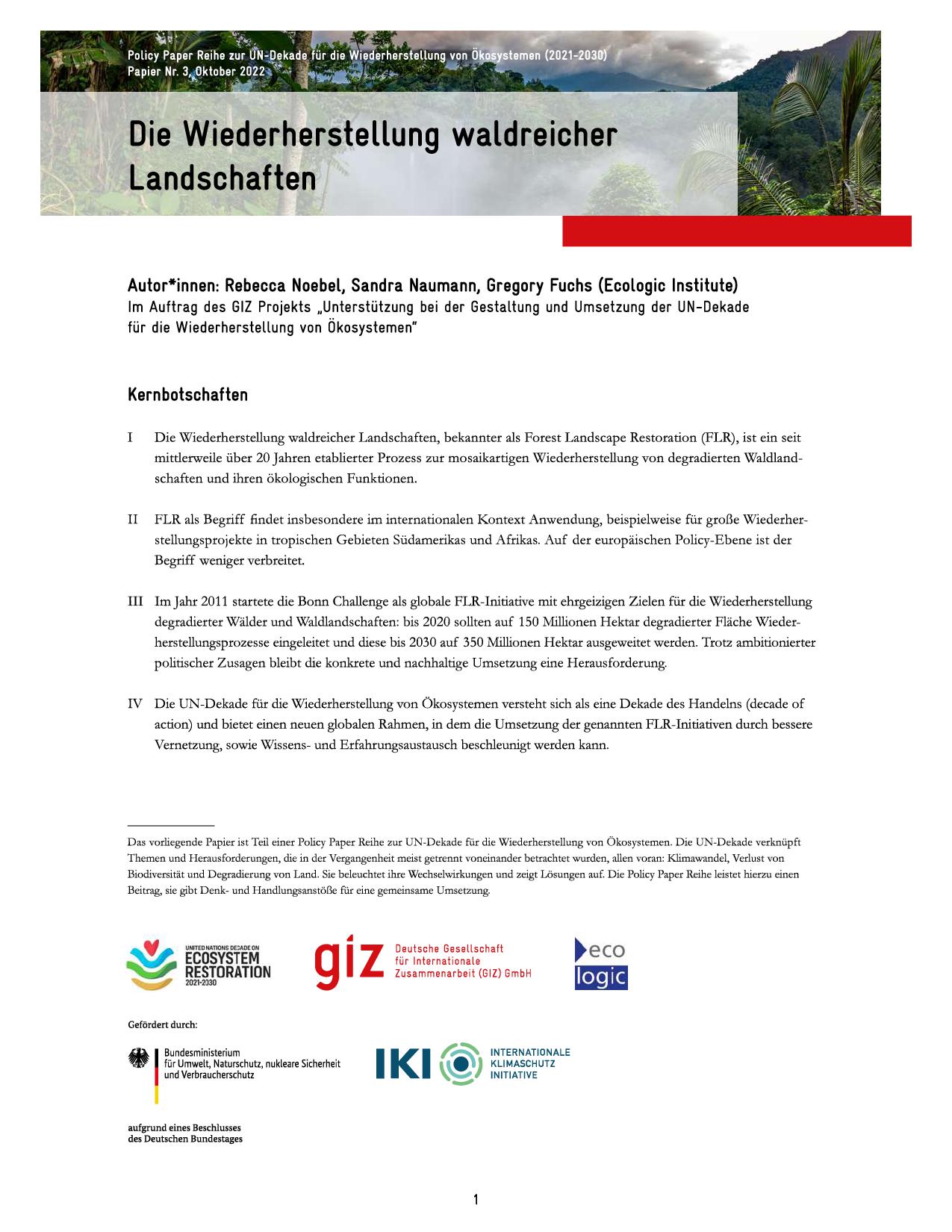Die Wiederherstellung von Ökosystemen als naturbasierte Lösung
- Publication
- Citation
Fuchs; Gregory; Naumann, Sandra; Noebel, Rebecca (2023): Die Wiederherstellung von Ökosystemen als naturbasierte Lösung. Federal Ministry for the Environment, Nature Conservation, Nuclear Safety and Consumer Protection, Berlin.
This edition of the policy brief represents the 2023 updated and content-revised version of the original document, thereby integrating the latest insights and developments in the field of Nature-based Solutions (NbS) and ecosystem restoration. It aims to provide evidence-based policy recommendations to deepen the implementation and mainstreaming of NbS as well as to enhance the efficiency of ecosystem restoration measures. Specifically, it addresses the potential of NbS to serve as a transdisciplinary linkage between biodiversity and climate issues, strengthening their role in both strategic planning and practical application. The success of these measures is conditioned by a variety of factors, including the design of the measures themselves, the political, societal, and financial support they receive, as well as the acceptance and engagement of the affected stakeholder groups.
Based on policy developments and scientific evidence, this paper provides an overview of ecosystem restoration as a nature-based solution to address societal challenges. It highlights the role of the UN Decade for Ecosystem Restoration in this and outlines a policy context that situates the development of NbS in the policy discourse. The different types of restoration activities in a continuum of practices are highlighted. In this context, the role of ecosystem restoration in achieving global biodiversity goals is discussed and the paper highlights global restoration initiatives and common standards for restoration activities. These include the IUCN NbS Global Standard and the Ten Principles of Ecosystem Restoration, which are considered and compared. Costs and funding sources for restoration activities are also examined.
Climate change and biodiversity loss are interdependent and mutually reinforcing yet have largely been addressed separately to date. A more integrated approach is needed to tackle these two global challenges effectively. The concept of NbS is such an approach and is increasingly considered and applied by decision-makers. Ecosystem restoration is a key NbS and can make a crucial contribution to achieving international biodiversity and climate goals simultaneously while contributing to human well-being.
